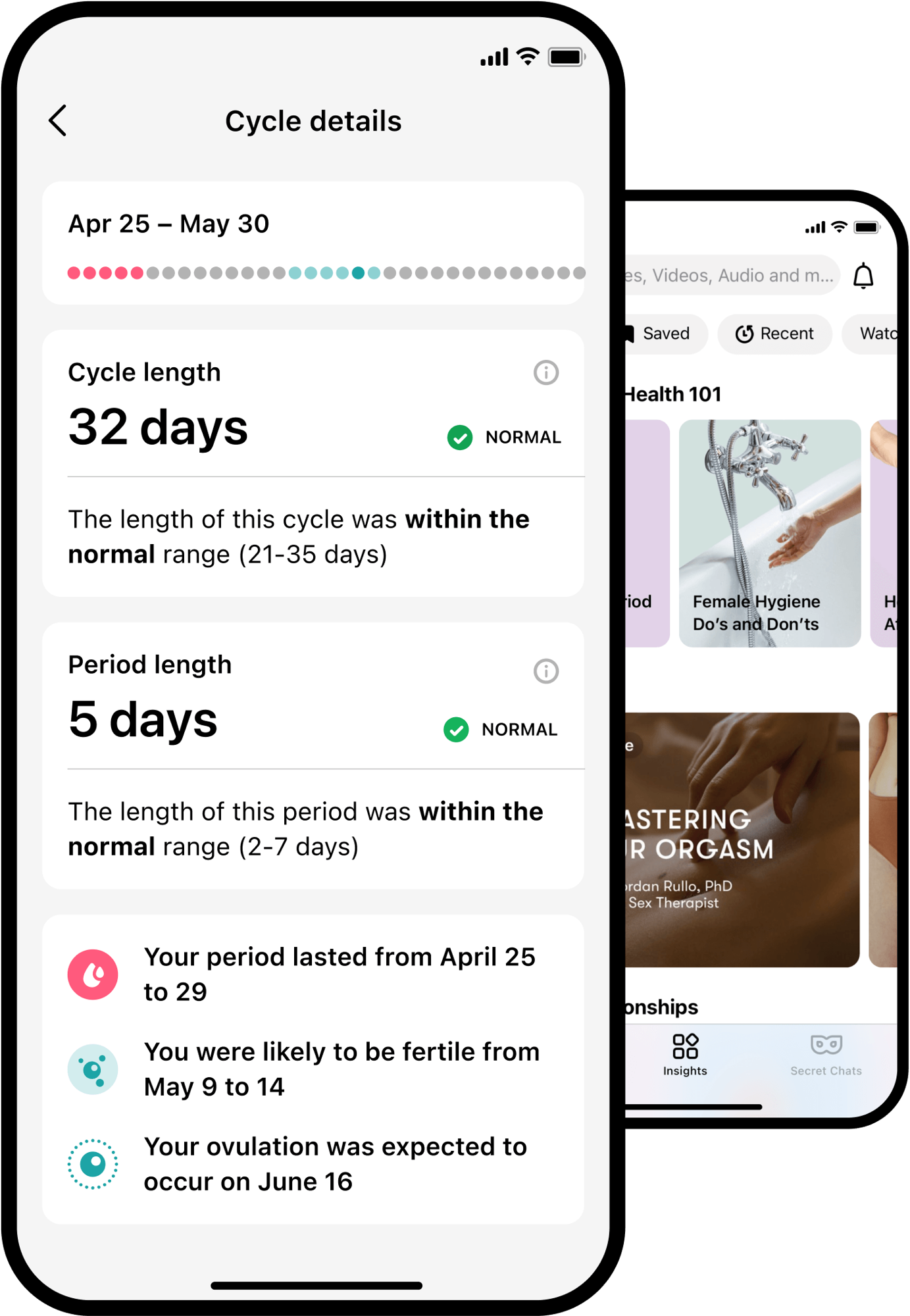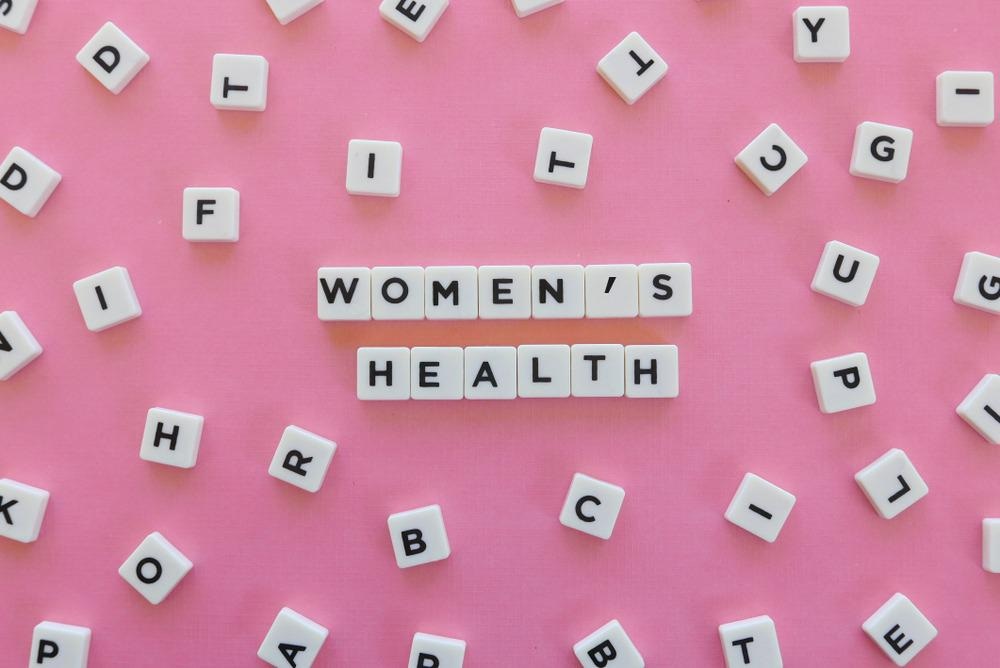In this interview, we speak to Sonia Ponzo, the Director of Science at Flo Health, about their app, how it's revolutionizing the field of women's health, and what more needs to be done to empower women worldwide.
Please can you introduce yourself, tell us what inspired your career into women’s health, and your current role at Flo?
My name is Sonia Ponzo and I am the Director of Science at Flo Health. My journey started over 7 years ago as a clinical neuropsychologist, treating patients with traumatic brain injuries. After noticing clear disconnections in the way some of these patients perceived their bodies following the accident, I started researching bodily awareness. That’s where I had the chance to explore the relationship between the mind-body connection and mental health, understanding how everything comes back to this fundamental experience of our own self. This is what prompted me to eventually broaden my research interests to general health - being in tune with one’s own body is the foundation of health.
Flo has the potential to be a positive, disruptive force in FemTech. We support women worldwide in their journey of discovery towards their healthy self. I have always chosen to work in companies where I was sure I could make a difference. Lots still need to be done for women to fully feel supported, empowered, understood, and not neglected in their everyday health challenges - and I am glad to be able to be part of this much-needed change.

Image Credit: Flo Health
"Flo has the potential to be a positive, disruptive force in FemTech."
Flo is the number one female OB-GYN recommended app for period and cycle tracking which is aimed at ‘helping girls and women to prioritize their health’. Can you tell us more about Flo and what some of your aims and missions are?
Flo aims to create a better future for female health. We do so by enabling women to take control of their health by supporting them throughout their entire reproductive lives, offering personalized cycle predictions, virtual health assistants, insights on general health, fertility, and pregnancy. Knowing not all women have the same access to health information, Flo also works with a large team of medical doctors and female health organizations to provide expert, evidence-based advice and commentary that’s unconditional and widely available.
While many health topics still remain taboo, Flo hopes that offering a library of accessible information will also empower open discussion, end stigmas, and help surround women with a supportive community. Lastly, Flo understands that in the digital age privacy is of the utmost importance. For this reason, we aim to provide a secure platform for women across the globe to share personal information.
Your app currently has over 43 million users worldwide. Can you tell us more about this app and what women can use it for?
Flo strives to help women track their health beyond their periods. The app supports women during their entire reproductive lives through tracking menstruation, sharing cycle predictions, or preparing for conception, pregnancy, early motherhood, and menopause.
Flo also provides personalized monthly health insights and essential knowledge on self-care to aid in preventing any future illnesses. With over 100+ medical experts, women can also access expert tips or connect with a professional via messages anytime a consult is needed. Flo also allows women to join a private community to share their questions, concerns and encourage open discussion.
Why are Millions of Women Using Flo?
By giving women access to data concerning their health, it can also help to improve their overall well-being. How is this?
Awareness and understanding of one’s own body signals can definitely have a positive impact on wellbeing. For instance, logging symptoms throughout their menstrual cycle allows women to create a record of what happens to them - and when. Such records can make women aware of patterns that they wouldn’t have otherwise noticed, including patterns of ill health and more severe conditions.
Awareness can lead to better preparedness which can, in turn, make women feel more in control of their health. Furthermore, getting to know one’s own body allows women to feel more in tune with it, which can positively impact self-acceptance and foster a positive body image.
The ongoing COVID-19 pandemic has highlighted the importance of scientifically accurate information. How important is providing medically accurate and safe data to Flo? What impact can the spread of misinformation have on women’s health?
Providing medically accurate and safe data to our Flo users is one of our company’s top priorities. We ensure any articles published, expert advice shared by our medical experts, or personalized insights have been fact-checked by our team of medical experts. Our goal is to be a trusted source women can turn to when they have questions or concerns.
If the ongoing COVID-19 pandemic has proven one thing, it’s how quickly misinformation about women’s health can be generated and spread, especially in the digital age. This outbreak of misinformation can have a negative impact by leading women to put their own health at risk. Negative outcomes include exposing themselves to potential issues or going a long period without being diagnosed.
"If the ongoing COVID-19 pandemic has proven one thing, it’s how quickly misinformation about women’s health can be generated and spread, especially in the digital age."
With many women’s health topics still taboo, why is it so critical to empower open discussion between women?
With knowledge comes empowerment. Through building a community where women can feel comfortable sharing questions or concerns, Flo is able to empower women to take control of their health and break down long-standing stigmas.
Providing a space where women can have open discussions helps foster a sense of confidence that encourages women to raise awareness and educate others so no one has to feel ashamed about their bodies or experiences.

Image Credit: Faizal Ramli/Shutterstock.com
Despite women’s health seeing increased interest in recent years, there are still more hurdles that need to be overcome? What do you believe to be some of the biggest challenges currently faced by women’s health?
I believe one of the biggest challenges women’s health currently faces is a lack of awareness and scientifically-backed research. For a long time, women have been left in the dark about symptoms, causes, or treatments of specific women’s health issues due to a lack of or insufficient studies.
However, Flo, and other women’s health companies, are attempting to change this. For example, we recently partnered with Johns Hopkins School of Medicine to conduct a study identifying the key risk factors of postpartum depression symptoms. With more than 1M participants from 138 countries, this study marks the first of its kind to examine relationships between risk factors during the perinatal period and depressive symptoms.
To date, most studies on this topic have been controversial and conducted on small, homogenous sample sizes. Larger, heterogeneous studies can combat this challenge and provide women with meaningful insights they can apply to their own health.
What do you hope the future of women’s health looks like? Are you hopeful that with continued open discussions, women will feel more empowered to take control of their own health leading to further progression within the field?
I think that we are moving in the right direction; however, there is still lots to do and we are nowhere near where we should be. A recent policy paper published by the Department of Health and Social Care detailed the results of a call for evidence to inform next steps for the Women’s Health strategy in England. 84% of the 97,307 women responders declared that they do not feel listened to by healthcare professionals. Strikingly, when women reported pain or painful periods, healthcare professionals brushed them off as normal.
We also know that many conditions (e.g. endometriosis) go undiagnosed for years precisely because of the fact that women are not listened to (for instance, see this paper that reports results of a survey of 4,334 women diagnosed with endometriosis, with 63% of them being told by their healthcare professional that nothing was wrong with them).
On top of all this, there is still a high level of stigma surrounding the topic of women’s health (e.g. menstrual cycle, menopause), which can have serious repercussions on women’s motivation to seek help when they need it.
As well as discussing your app and its uses, you often post positive affirmations and motivational messages on your social media channels. Why is it so important, especially in the digital age, to empower women? What advice would you give to women who want to take control of their health?
The more women are exposed to positive affirmations or motivational messages, the more empowered and confident they will feel to embrace their bodies and share their experiences with others. We see this a lot, especially with the strong community that has been provided and created for Flo users. It’s important that they know they have a group of people out there ready to support them.

Image Credit: YuliaLisitsa/Shutterstock.com
What’s next for Flo? Are you involved in any exciting upcoming projects?
We are now planning a pipeline of research studies, in collaboration with our university partners, to evaluate the effectiveness of Flo on various health outcomes (e.g., quality of life, well-being, perceived health, and mood). We are also looking at data from wearable devices (e.g. physical activity, sleep, heart rate) to understand its relationship with various aspects of the menstrual cycle as well as wellbeing.
Part of our research efforts will involve exploring the possibility that using Flo may help women in employment improve their productivity and reduce the number of days taken off work for issues related to the menstrual cycle. Finally, we are also continuing to collaborate with various research partners to answer key questions on the topic of women’s health using the data Flo collects.
"The more women are exposed to positive affirmations or motivational messages, the more empowered and confident they will feel to embrace their bodies and share their experiences with others."
Where can readers find more information?
Readers can find more information by visiting https://flo.health/ or visiting our LinkedIn, Twitter, Instagram, and Facebook.
About Sonia Ponzo
Sonia graduated in Psychology (MSc cum laude) at the University of Turin in 2014. She’s worked as a neuropsychologist for one year and later enrolled in a joint-lab Ph.D. at the University of Hertfordshire. After completion of her Ph.D. in 2019, Sonia joined BioBeats, a well-being start-up, as a Research Scientist. Her role focused on designing research studies, analyzing their output, and drafting papers for publication in top-tier digital health journals.
In February 2021, she joined Thrive as their Head of Clinical Research. In January 2022, Sonia joined Flo Health as the Director of Science. At Flo, she is responsible for developing and executing Flo’s research strategy by designing a pipeline for the scientific evaluation of our product, including efficacy and claims generation; setting-up new academic collaborations; leading on research dissemination and papers write-up; fostering and cultivating a culture of evidence-based, rigorous, scientific work within the wider team.